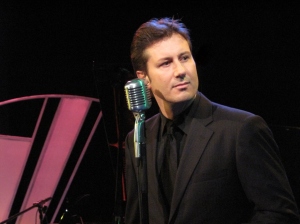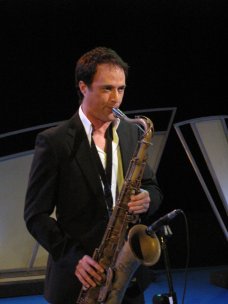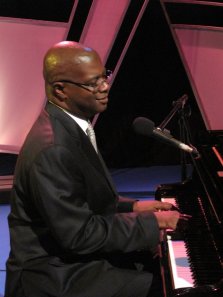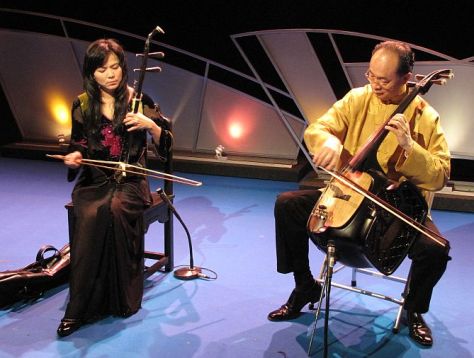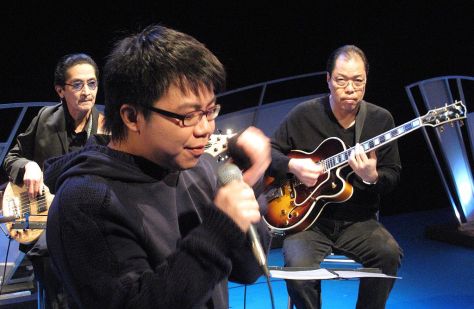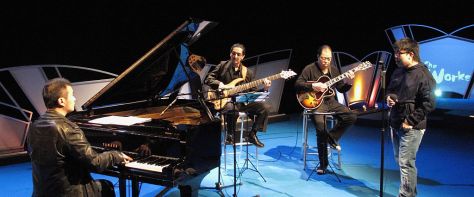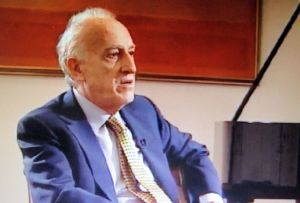 In Hong Kong this week for a sold out one-night concert, Maurizio Pollini is renowned for playing composers such as Beethoven, Schubert, Schumann and Brahms, but particularly for his interpretation of the works of Chopin. It was Chopin that first boosted his career when, in 1960, he was awarded the first prize at the International Chopin Competition in Warsaw at the age of 18. He was the youngest participant. Now 67, almost five decades after the Chopin competition, Pollini still features the composer prominently in his repertoire.
In Hong Kong this week for a sold out one-night concert, Maurizio Pollini is renowned for playing composers such as Beethoven, Schubert, Schumann and Brahms, but particularly for his interpretation of the works of Chopin. It was Chopin that first boosted his career when, in 1960, he was awarded the first prize at the International Chopin Competition in Warsaw at the age of 18. He was the youngest participant. Now 67, almost five decades after the Chopin competition, Pollini still features the composer prominently in his repertoire.
Ben Pelletier: You are known for playing a wide range of composers, including many modern ones, but you have a special affinity for Chopin. In fact, your Hong Kong concert is all Chopin.
Maurizio Pollini: Chopin is a composer that I started to frequent or like very much since youth. Many years ago I won the Chopin prize in Warsaw and from that time, I’ve extended the relationship. I have to say one thing: in fact my repertoire and curiosity is towards many composers. I don’t like specialists in general, and I’m not a specialist in Chopin. But certainly he’s a composer to whom I have dedicated a lot of my time and love. Chopin is a marvellous composer and marvellous person. I can tell you he’s one of the greatest musicians. His music is a test for great musicians who understand deeply music, who understand the greatness of this composer. Chopin has something absolutely magic and mysterious about him. He’s not a person you can understand with simple clichés, with simple definitions. He’s certainly not only the romantic sentimental composer who pleases very much young women, or even aged women, in an easy way. He is really one of the great composers. His miraculous treatment of harmony, of melody, is extraordinary.
I have one thing to tell you which is pretty mysterious. If you play Chopin, you find always something strong if you really try to understand it entirely. He’s a composer who seems easy, because he has a tremendous fascination in his treatment of the sonority of the piano, that he invented. It’s a quality of him alone. There’s a magical and extremely seductive surface but he’s much more than that, and he’s difficult to understand. Especially if you don’t really love him, it’s hard to play him perfectly. I would say this is true with all composers, but this is particularly true with Chopin.
Ben Pelletier: Your concert in Hong Kong is an all-Chopin line-up, what choices went into coming up with the programme?
Maurizio Pollini: It’s a programme in which I have presented many pieces that I have played many times in other towns and in different programmes. What is special? Should I say something about the great B-flat minor sonata, which is absolutely well known by everybody. But it’s still an extraordinary piece, and the movement is in a minor key. Even Schumann is perplexed by this sonata, this great tragic mood that expresses itself in the finale. This piece has an incredible tragic unity. In my opinion, its form is absolutely perfect, as in every other work of Chopin. He never writes one note too much, or too few. He has this extraordinary control of the length of his work, which he works at very, very, hard. It has to be said about him that he is a person who is terribly demanding to everybody. He had a terribly fastidious taste. He didn’t like most of the music that he knew by great composers. And he is very severe with his own music. And he worked on it seriously for a long, long, time. He was never satisfied. He had a pencil. He put away the pencil. And he started again. Every bar and detail is sought after by a man who is never happy. Returning to the Sonata, what Schumann didn’t understand is the tragic unity of this piece, its particular character, and very great strength. In particular besides the famous Marche Funèbre, there is the finale, which is a very daring piece. It is a piece projected into modernity, and Schumann said of it “This is no more music”. It was indeed music that was much ahead of his time.
Ben Pelletier: You’ve had the luxury to revisit some of the recordings you made as a younger man. How has your interpretation of, especially, Chopin’s music changed over time?
Maurizio Pollini: My interpretation, I have to say, always changes, but it changes very gradually, because even the first interpretation was the fruit of a lot of thinking etc. So it has already established a certain line. But the line can enlarge itself with time, a new perspective can join it, and so there is a development. For Chopin it seems to me that I play with rather more freedom and rubato than I did in my first years. If I listen to my first recordings made in the early 1970s I still like it, there are some studies I like very much, but it is very strict in the timing. But now I think I play Chopin in a more free way. I still have a certain idea that perhaps too much rubato perhaps doesn’t add very much to the best image of this composer that we can have. A certain reserve in the rubato is absolutely necessary. It is said that it existed in Chopin’s playing so it’s absolutely necessary – the rubato. But the rubato extended to the limit could be not of great help to the understanding of this music as great music. It’s not a matter of how much rubato, it’s a question of the quality of the rubato. Some pianists have more freedom, some have more restraint. It’s a question of how they do it.
Widely praised for his exceptional skill and technique, Pollini is sometimes accused of being too cool in his interpretation. He plays with intensity and restraint, counteracting any tendency towards sentimentality in approaching the music. To Pollini, fidelity to the original text is as important as interpretation. It’s a balance
Ben Pelletier: Throughout your career, your unique perspective has allowed you to see how interpretations of other artists have changed over time. Is it your general feeling that people are getting more sentimental in their interpretations lately?
Maurizio Pollini: It’s a rather difficult question, because if you think of the great pianists of the 19th century, actually I didn’t hear them, but they’re supposed to be extremely free. In the beginning of the 20th century, the idea established itself of being the most faithful to the composer. Think of a man like Toscanini. Think of what Rubinstein has done for Chopin interpretation – an interpretation somehow serious, and somehow more in the rubato, slightly restrained. It was a trend to being more reserved. Nowadays, yes there might be a trend towards more sentimentality. The people need and would like to have more romanticism in the performance. I absolutely agree with this idea, if this idea combines itself with a great faithfulness to the composer, which in my opinion is a conquest of the 20th century that shouldn’t be given up.
Ben Pelletier: Certain composers, such as the Russian romantics like Tchaikovsky and Rachmaninoff, have featured much less in your concert programmes and recordings. Why is that?
Maurizio Pollini: In fact there are great many composers that did not go into my repertoire, but I like them very, very much, I played very little Ravel. I almost didn’t play Scarlatti. It’s a pity I didn’t play Haydn. And of the Russian repertoire I did very little. Well, I did play 3 movements of Petruschka, but I didn’t play many others. Why? Perhaps I thought it was too much or too well played. But certainly you don’t have to have a clear picture from the repertoire of my real musical taste, which is much broader than my repertoire can be. The fact is the piano repertoire is marvellous, a million times marvellous. I think no one can afford to do all he’d like to do.
Ben Pelletier: Also over your career, you’ve championed contemporary composers like Stockhausen, Boulez just to name a couple. How do audiences react to this kind of music?
Maurizio Pollini: The audience reaction to, so to say, contemporary music … some of this music is not contemporary any more. But any way the reaction of the audience if the performance is good is excellent. The problem is that in normal concert life nowadays, the taste of the public is very backwards. They have not enough experience of the genius of the 20th century. All the area of the renewal of the language in the 20th century is not well known by the public unfortunately, and this is an enormous pity. If I have advice to young pianists, it is to do this too, to expose this music to impresarios, recording companies, etc. Because in my opinion, this araa of the more advanced repertoire is full of genius and consists of the most important compositions, composed for instance in the second half of the 20th century. So the best are works by Boulez, Stockhausen, Nono and Berio. And many other composers. Also there are works of Schoenberg in the first half of the 20th century that are extremely important and great.
Ben Pelletier: You have done so much to date, what are a few of the upcoming projects that excite you?
Maurizio Pollini: I have various programmes. I would like to do more on advanced music, with commissions to good composers. I am also trying to arrange a series of concerts which combines composers of the past, old composers, with composers new to us, to try to promote aspects of modernity that audiences don’t know very well. I would like to do this. And to finish recording the Beethoven sonatas. To record again many of them, and then to continue with Bach, I would like to re-record Chopin’s work by chronological order and do modern works, and many more.
Ben Pelletier: Maestro, thank you very much.
Maurizio Pollini: Thank you.
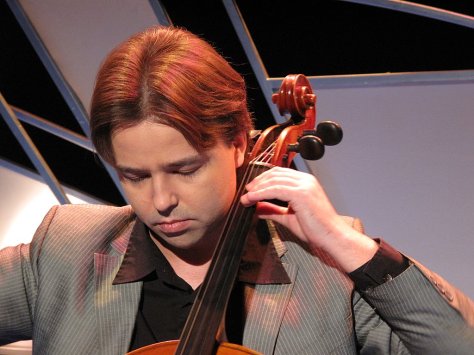 Joining us in the studio tonight is cellist Artem Konstantinov and Sarah Tsang of the Hong Kong Cellist Society. The society has organised a cello festival that includes master classes, a master recital by Artem, and a participants’concert. In our studio Artem plays a sarabande from Bach’s third cello suite.
Joining us in the studio tonight is cellist Artem Konstantinov and Sarah Tsang of the Hong Kong Cellist Society. The society has organised a cello festival that includes master classes, a master recital by Artem, and a participants’concert. In our studio Artem plays a sarabande from Bach’s third cello suite.